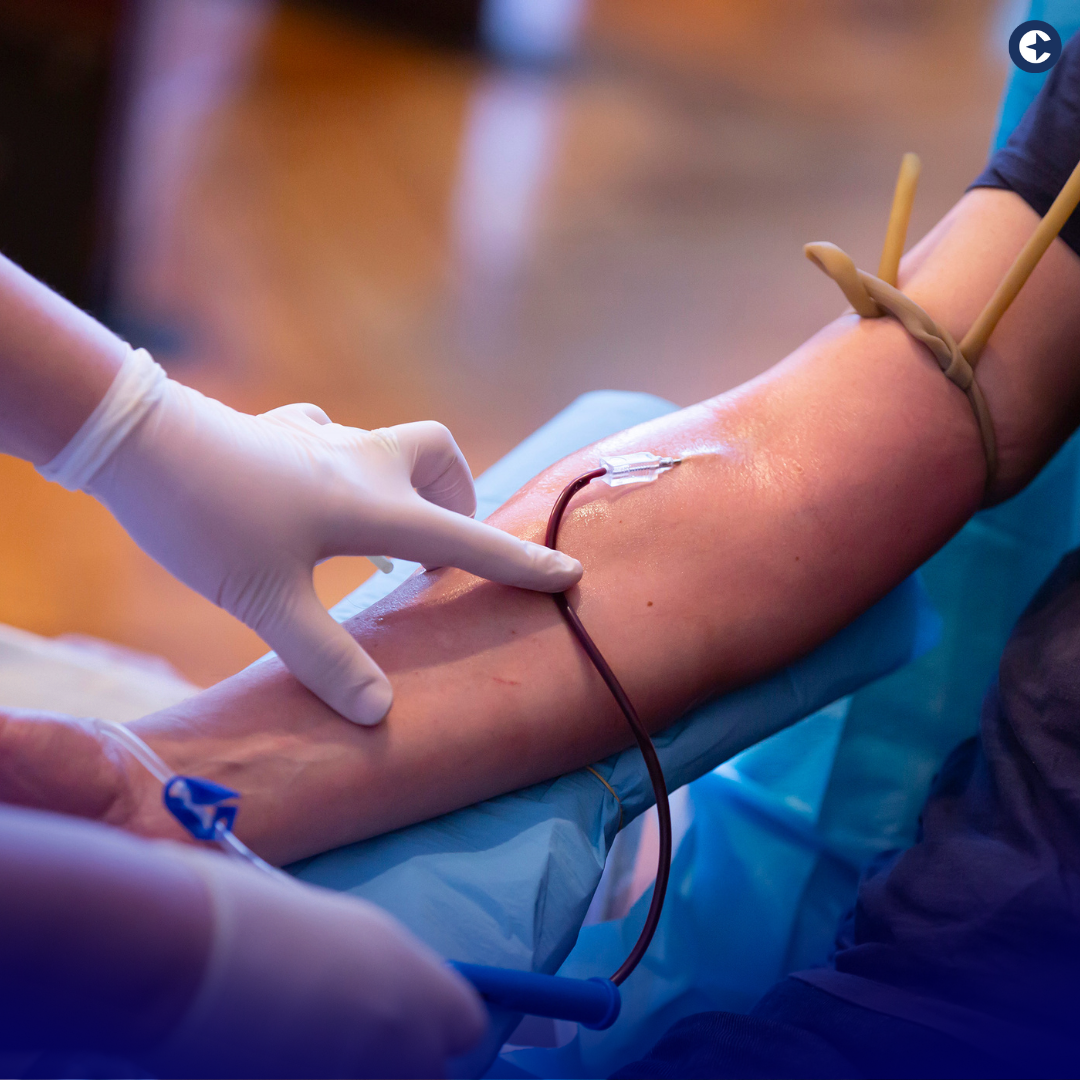Blood donation is a simple yet profoundly impactful act that saves millions of lives each year. Despite advances in medical science, there is no substitute for human blood, making donations crucial for the health and survival of many. Whether used in surgeries, trauma care, or treating chronic illnesses, donated blood is essential. This blog explores the importance of blood donation, its benefits, and how you can contribute to this lifesaving cause.
Why Blood Donation is Crucial
- Lifesaving Necessity Blood is vital for many medical treatments. Every two seconds, someone in the U.S. needs blood, and a single donation can save up to three lives. Blood transfusions are necessary for patients undergoing surgeries, cancer treatments, childbirth complications, and trauma care from accidents or injuries .
- Supporting Chronic Conditions Patients with chronic conditions like sickle cell anemia, hemophilia, and various types of cancer often require regular blood transfusions. For these individuals, donated blood is not just a one-time need but a continuous lifeline .
- Emergency Situations In emergencies such as natural disasters, accidents, or mass casualty events, the immediate availability of blood can make the difference between life and death. Blood banks need a constant supply to be prepared for such unexpected needs .
- Limited Shelf Life Blood components have a limited shelf life. For instance, red blood cells can be stored for up to 42 days, platelets for just 5 days, and plasma for about a year. This short shelf life means there is a continuous need for fresh supplies to ensure a stable blood bank reserve .
Benefits of Blood Donation
- Health Benefits for Donors Donating blood is not only beneficial for recipients but also for donors. Regular blood donation can help reduce harmful iron stores in the body, lower the risk of heart disease, and stimulate the production of new blood cells. Additionally, it offers a mini health check-up, as donors are screened for various health conditions before giving blood .
- Community Impact Blood donation fosters a sense of community and altruism. It’s a way to give back and support your community, knowing that your donation could save someone’s life or improve their quality of life. Many communities organize blood drives that bring people together for a common cause .
- Support for Medical Research Donated blood is also crucial for medical research, helping scientists develop treatments for blood disorders and other diseases. Research labs use donated blood to study and create therapies that could lead to new medical breakthroughs .
How to Donate Blood
- Find a Donation Center The first step to donating blood is finding a local blood donation center or blood drive. Organizations like the American Red Cross, local hospitals, and community centers frequently host blood drives. You can use online tools to locate the nearest donation site.
- Eligibility Requirements To donate blood, you must meet certain eligibility criteria, such as age, weight, and health conditions. Generally, donors must be in good health, weigh at least 110 pounds, and be at least 16 or 17 years old, depending on local laws. It’s important to check specific requirements with the donation center before your visit .
- Preparation for Donation Before donating, ensure you are well-hydrated and have eaten a healthy meal. Avoid fatty foods and alcohol before donation. Bring a valid ID and complete any necessary registration forms. The donation process typically takes about an hour, including registration, a health screening, the donation itself, and a short rest period afterward .
- After Donation Care After donating blood, it’s important to rest and hydrate. Most donation centers provide refreshments to help replenish fluids. Avoid strenuous activities for the rest of the day and report any adverse reactions to the donation staff. Your body will replenish the donated blood volume within 48 hours, and red blood cells in a few weeks .
How You Can Help
- Donate Regularly If you are eligible, consider becoming a regular blood donor. Your ongoing contributions are vital for maintaining a steady blood supply and supporting those in need.
- Organize a Blood Drive You can organize or participate in community blood drives. These events raise awareness and encourage others to donate, amplifying the impact of your efforts.
- Spread Awareness Use social media and community networks to promote the importance of blood donation. Share your experience and encourage friends and family to donate.
Conclusion
Blood donation is a powerful act of generosity that has a direct and profound impact on people’s lives. By donating blood, you not only save lives but also contribute to the well-being of your community. Whether it’s through direct donations, organizing blood drives, or spreading awareness, everyone has the potential to make a difference. The need for blood is constant, and every donation counts. Consider giving the gift of life and becoming a blood donor today.
For more follow us on Instagram, Facebook, Twitter, & LinkedIn.



